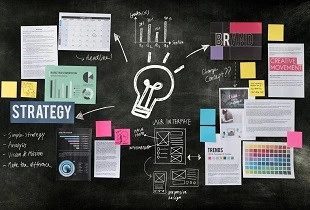PEX Retrospective Series: Trends in Process Excellence in 2020
Experts from Eli Lilly, Microsoft and Uber discussed the trends that were set to transform process excellence in 2020, including artificial intelligence and cloud solutions
Add bookmark
The first report to be made available for all in our PEX retrospective series is PEX Network: Trends in Process Excellence 2020 published in December 2019.
The report, released just a few months before the Covid-19 pandemic took hold, dubbed 2020 as “the year of transformation”. The report looked at how technologies such as robotic process automation (RPA), business process management (BPM) and artificial intelligence (AI), which had already shaped the process landscape, would influence 2020. This included predictions of AI’s expanded role within existing frameworks, as well as why RPA-as-a-service accelerating the adoption of enterprise automation.
Garret Etgen, senior director of Lilly Research Lab operations at Eli Lilly, believed that all industries would see the need to implement transformation programs in order to catch up with the rapidly evolving technological landscape in 2020.
“As early adopters have shown the benefits of digital over the last few years, other industries and businesses are sure to jump on board in 2020,” Etgen predicted. “There is likely to be a big wave of enthusiasm, followed by a period of settling where gaps are identified and appropriate use cases established.”
There was, however, a prediction that a lot of the enthusiasm from organizations would be coming from fear of missing out and following the trend, and would not necessarily be accompanied by a clear strategy and definitions of success.
We summarize below the key trends that were identified before the Covid-19 pandemic changed everything.
RPA-as-a-service would accelerate the adoption of enterprise automation
As organizations looked to remove silos, cloud-based services were seen as the standard to help share information and processes across departments. Software robots combined with cloud servers, data analytics and machine learning, dubbed “agile process automation”, would optimize business processes and help with speed, quality and compliance.
RPS-as-a-service (RPAaaS) was also seen as an enabler for “bot for every worker” initiatives, making RPA deployment easier and allowing for cautious businesses to run experimental projects to gauge the benefits before allowing for wider-scale adoption.
While RPAaaS may have not taken off as predicted in 2020, it has certainly received a lot of interest, as Kashif Mahbub, vice president product marketing at Automation Anywhere, explained in PEX Network: Trends in Process Excellence 2021.
Mahbub noted: “[In 2019] we have introduced a pure cloud-based approach to RPA […] and it has been the fastest-growing offering we have ever done.”
The reasons behind its popularity include ease of use, a lower total cost of ownership and decreased cost of maintenance compared to traditional RPA.
Cloud-based solutions in general became increasingly important in the wake of the Covid-19 pandemic in 2020, with 31 per cent of respondents from the PEX Report 2021’s survey having invested in cloud adoption for infrastructure-wide digital transformation.
Growing incorporation of AI in RPA and BPM
AI was predicted to be increasingly incorporated in in RPA and BPM to help automate end-to-end processes and reduce the need for human involvement.
Antony Walker, productivity data analytics and automation lead at Bank of America Merrill Lynch noted in PEX Network’s Trends Report 2020: “In 18 months to two years, I don’t see there being any pure RPA initiatives; instead, everything will have intelligence built in.”
Organizations were expected to use AI to automate high-volume customer emails, dramatically shortening process times and improving customer experience. On the internal process side, AI-enabled RPA would help businesses visualize and identify areas for improvement to increase the understanding of organizational structure.
In 2021, not every automation initiatives has intelligence built in, as RPA is still effective on its own for rule-based, repetitive tasks. As outlined in PEX Network’s Using intelligent process automation to build business resiliency report, there has, however, been a definite move from organizations toward going beyond traditional RPA to automate processes by using intelligent automation (IA) technologies.
In IA initiatives, process mining gives organizations visibility over process steps, while BPM methodology offers information on how best to optimize them. Data can be collected on processes by a RPA bot, and ML and AI can analyze it, and by mimicking human learning can offer information to help humans make informed decisions on their processes.
AI would revolutionize chatbot development
Developments in AI, speech-to-text recognition and natural language processing were already opening the door to chatbots with voice-activated functionality. Voice chatbots save employees time by allowing them to tell them what the issue was instead of typing it out, or having a bot retrieve a document in place of a human worker asking a colleague for it.
In an interview with Erhan Ok, head of intelligent automation and integration at PepsiCo, published in June 2021 on PEX Network, he confirmed chatbots would be part of a process entirely automated with IA.
Ok said: “RPA automates routine steps; AI processes images and other non-digital assets; and chatbots provide customer-focused solutions. Perhaps in the future there will be a way for customers to have a personalized digital assistant that will handle any of their requests autonomously and deliver in real-time.”
































